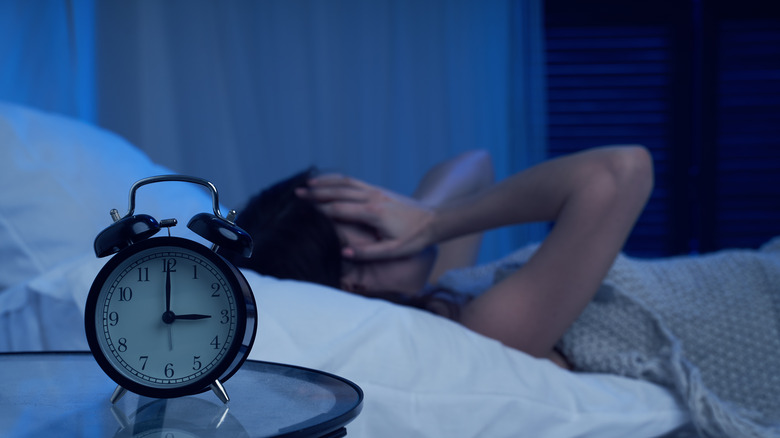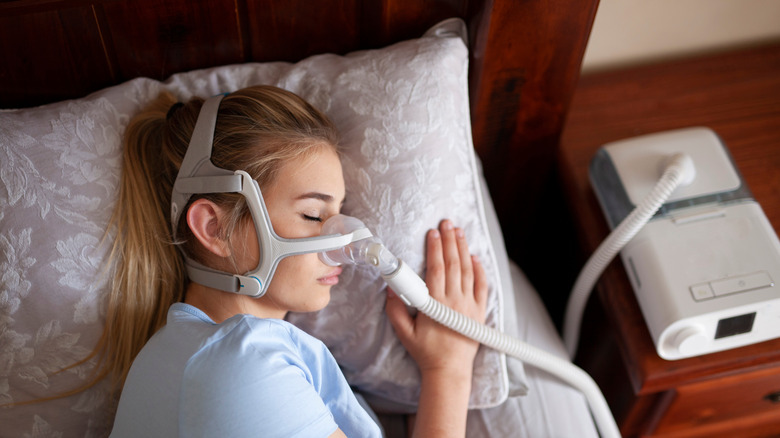Things That Make Your Sleep Apnea Worse
If you've ever noticed that you struggle to breathe when you're asleep, you may have sleep apnea, a serious sleep disorder in which your breathing is halted (via WebMD). Though sleep apnea may not seem that deadly, when left untreated, the condition may prevent your brain and body from getting the oxygen they need.
There is medication that can treat sleep apnea, but in order for the medication to work effectively, there are some life changes you might have to commit to if you don't want your sleep apnea to progress further. Per U.S. News & World Report, the biggest change might be losing weight. Per the report, more than 50% of people diagnosed with sleep apnea are overweight. "There is increased fat deposition around your neck area, which can make your upper airway and your windpipe area more vulnerable to collapse at nighttime," said Dr. Ashima Sahni, an assistant professor of clinical medicine and associate program director of the sleep medicine fellowship at the University of Illinois at Chicago.
Aside from obesity, the next biggest factor is medications. U.S. News revealed that certain pills such as muscle relaxers and or even sleeping pills make a person more vulnerable to developing (or worsening) sleep apnea. And, that's not even the worst of it — when taking sleeping medication along with having sleep apnea, you're putting your body further at risk, because there's a higher chance that your brain not getting oxygen when taking sleeping pills while having sleep apnea.
Other factors that'll worsen your sleep apnea
Even if you're neither overweight nor taking prescription pills, other health issues can also comprise your sleep apnea. Diabetes, high blood pressure, and hypertension can all make sleep apnea worse. "About 30-40% of adults with high blood pressure also have sleep apnea, which is more prevalent in those with drug-resistant hypertension," Dr. Asha Singh, director of the Oregon Health & Science University Sleep Medicine Program in Portland, told U.S. News. "So, approximately 80% of patients that don't respond to hypertensive medication have some apnea. Adhering to sleep apnea treatment is a proven means of decreasing blood pressure."
The report further stated that 7 out of 10 Type 2 diabetes patients suffer from sleep apnea. And get this: sleep apnea severely impacts your diabetes while also lowering your glucose control.
Another factor is alcohol. Alcohol increases muscle relaxation, which makes the airway (as the airway is a muscle) more susceptible to obstruction.
While there are a lot of factors that make sleep apnea worse, what's great about these lifestyles choices is that you can change them. Eat healthier. Exercise more frequently. Reduce or eliminate alcohol intake. You and your body don't have to suffer if you make the right choices.

